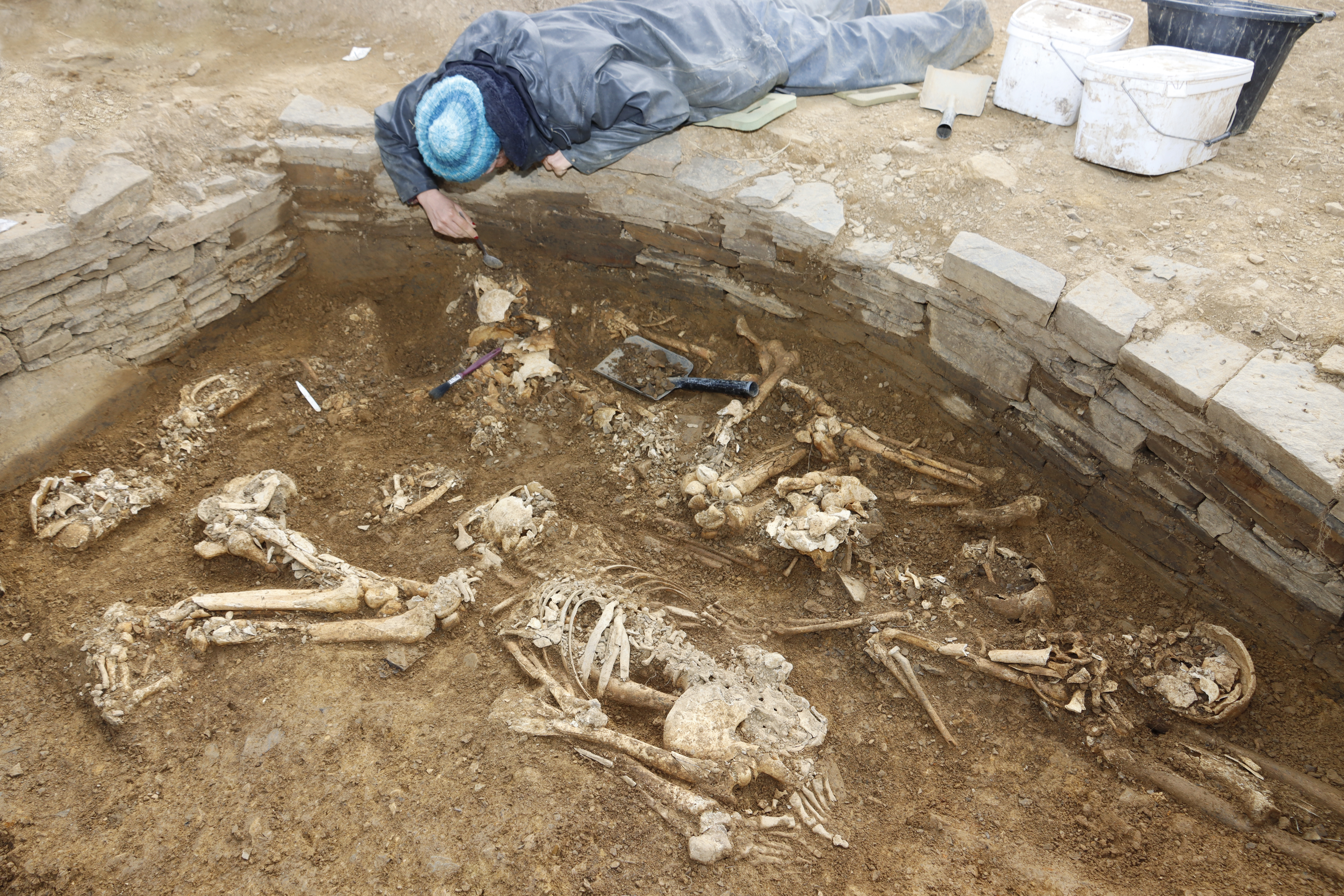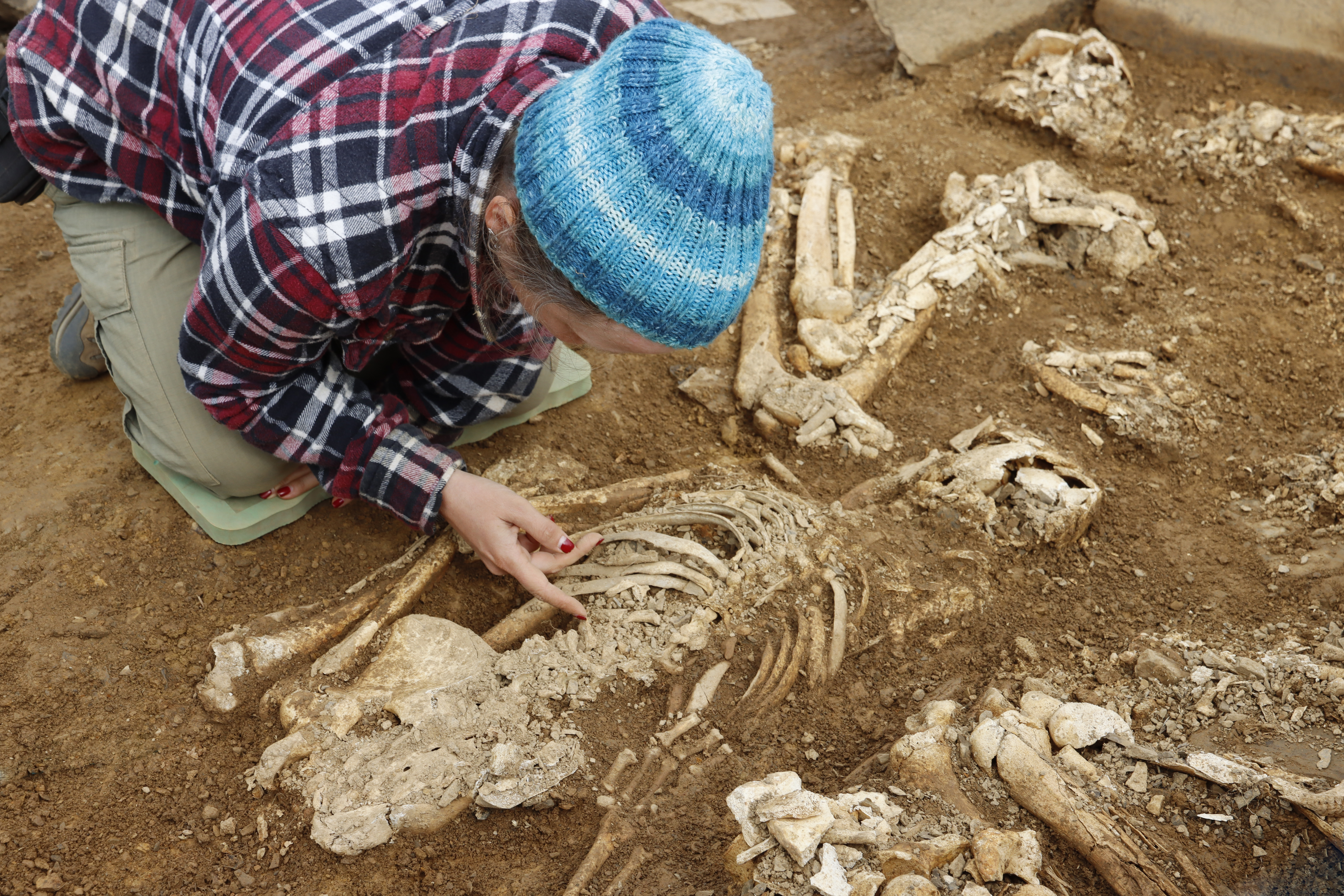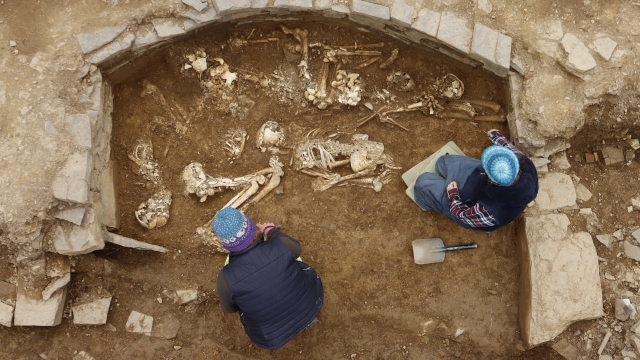As if the scene were pulled straight from a spooky movie this Halloween season, archaeologists have just discovered the skeletons of more than 14 people in an "incredibly rare" 5,000-year-old tomb.
Experts from National Museums Scotland and Cardiff University had been working on an excavation project in Scotland's Orkney Islands for three weeks when they discovered the Neolithic site on the mainland, NMS said in a statement Tuesday.

It's classified as a "Maes Howe-type" passage grave, which is considered the "pinnacle of Neolithic engineering in northern Britain," NMS said.
This classification means the stone structure can be accessed through a 23-foot-long, or 7-meter-long, passage with mounds of stones known as cairn covering it.
Only 12 other Maes Howe-type tombs have been discovered in Orkney, and most are visible above ground.
But without any record in the 19th century, this tomb had been buried beneath a pasture field and wrecked to supply building stone for a nearby farmhouse, NMS said.
However, while digging the area in 1896, the farmer's son discovered eight skeletons, prompting archaeologists to search the precise location and unearth 14 more skeletons of men, women and children. These were found in one of the chamber's six smaller side cells, along with other "disarticulated" human remains and artifacts.

"Orkney is exceptionally rich in archaeology, but we never expected to find a tomb of this size in such a small-scale excavation," Dr. Hugo Anderson-Whymark, one of the excavation's co-directors and a senior curator at NMS, said. "It's incredible to think this once impressive monument was nearly lost without record, but fortunately just enough stonework has survived for us to be able to understand the size, form and construction of this tomb."
Anderson-Whymark told CNN two of the skeletons were positioned as if they were almost embracing each other with two children placed over their heads.
"The preservation of so many human remains in one part of the monument is amazing, especially since the stone has been mostly robbed for building material," said Vicki Cummings, a professor at Cardiff University and the other co-director of the excavation. "It is incredibly rare to find these tomb deposits, even in well-preserved chambered tombs and these remains will enable new insights into all aspects of these people's lives."
SEE MORE: Over $1M worth of dinosaur bones stolen from Utah and sold to China
Trending stories at Scrippsnews.com



